Starting a new year on an honest note is not only fantastic for ourselves here at Litengard, but it could be helpful to others. It gives us a realisation of what we should do in the coming months. No person, no system, no plan, and no action is perfect, and we had our fair share of those. 2020 will afford us an opportunity to heal and resolve current weaknesses and create new ones. So here we go with 2020 – To Err Is human, To Fix, Sublime.
In no relevant order, here are some things that would have been at least a little life-changing had we done it differently. Surely, most of this can apply to you in some meaningful way.
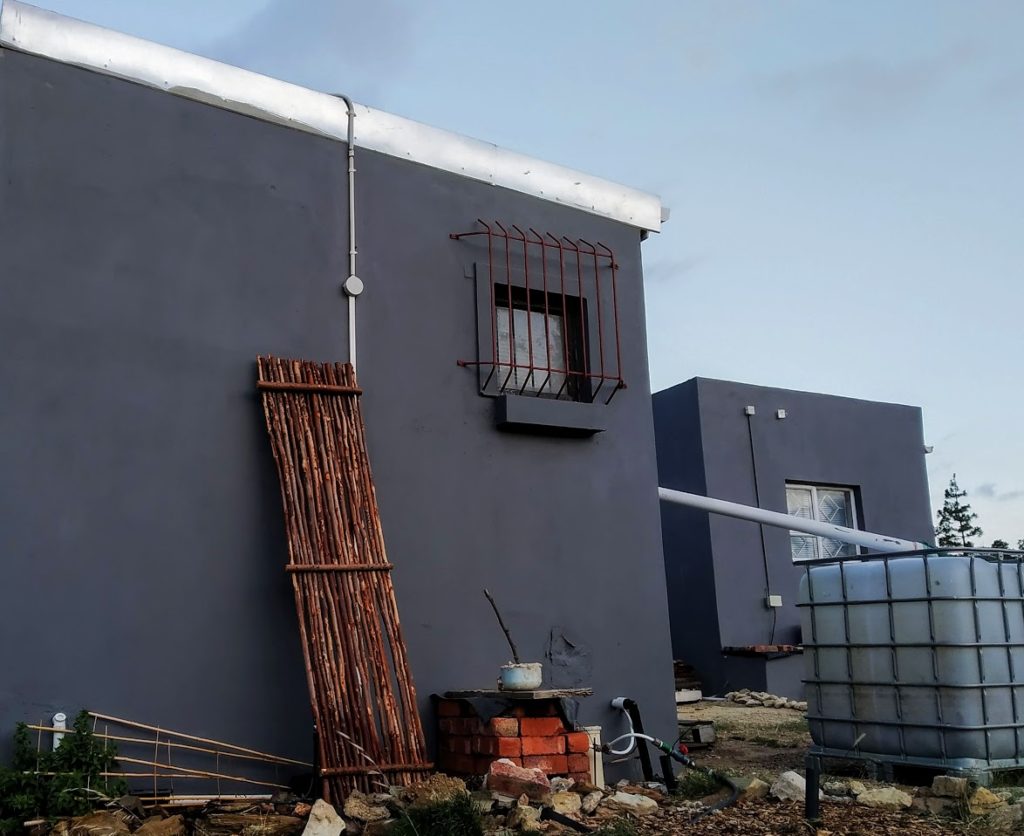
It’s clear that darker colours absorb more heat, but when we looked at blending our cottages into the landscape (for medium and long distance) we overlooked thermal characteristics. The stormy-sky paint is a fantastic, hard-wearing paint. It is not, however, a reflector of heat on the many days we experienced forty degrees or more. We might contemplate repainting in white, as winter warming is much less of an issue than summer cooling. Internal temperatures inside can stay as high as thirty-six degrees, making sleep difficult and spoiling medicine and food. Before you jump up and yell ‘Insulation!’, we are ahead of you on that. Our heat does not come from the roof, thanks to ISO-board and such, but from the sun-baked bricks themselves. Air-conditioning is not an option dictated by personal and technical constraints.
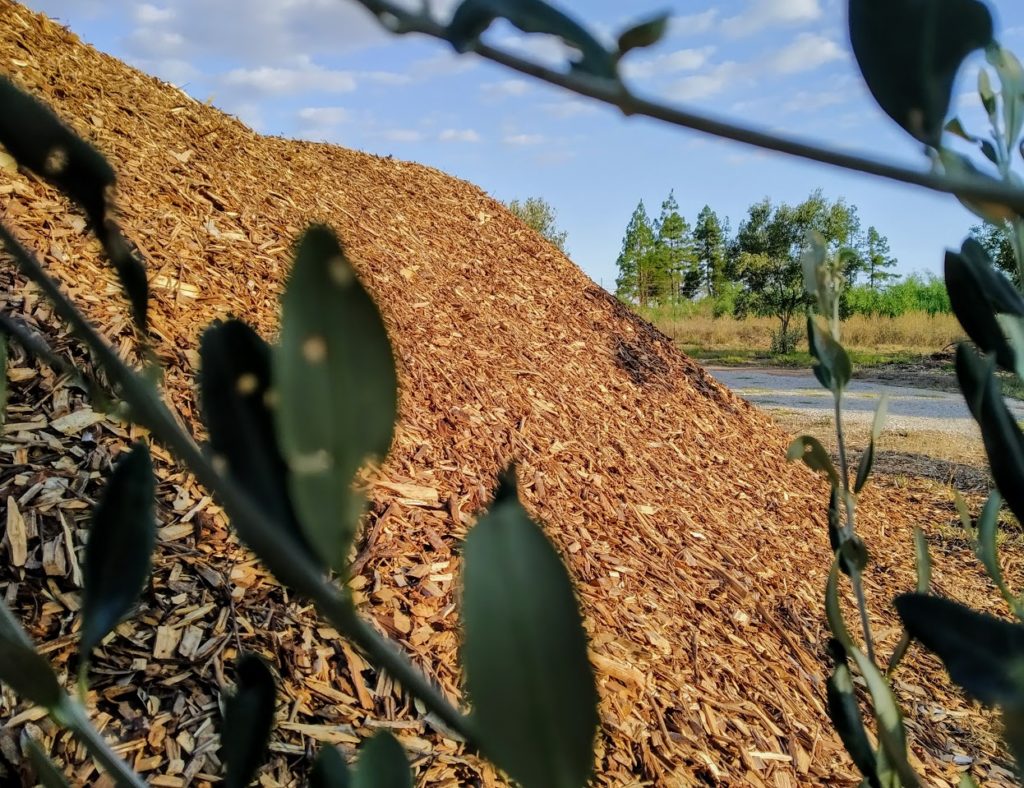
Fortunately, Mulching is like planting a tree. We missed the mark last year, so today is a good time to do it. Woodchips and chaff have been our primary ‘cover’ for some time now, and it’s great. In fact, it works so well, I have regrets about not starting sooner. We are adding it to everything and on top of everything. Woodchips make a pleasant path to walk on while preventing compaction, it also keeps moisture in on potted plants, around trees and in garden beds. Take care though because chickens forage around and make holes which need to be closed up to maintain a good armour. If I started spreading woodchips around during the winter rains, we would have had some much larger plants by now. Our pomegranate trees, blueberry bushes, and other things have shown drastic improvement with mulch around them. While it blocks unwanted plant growth in strategic areas, it also facilitates germination of some of our seeds when used in thin layers. Be attentive to using allelopathic stuff though, giving enough time to let it mature properly. Mulch, mulch, mulch.
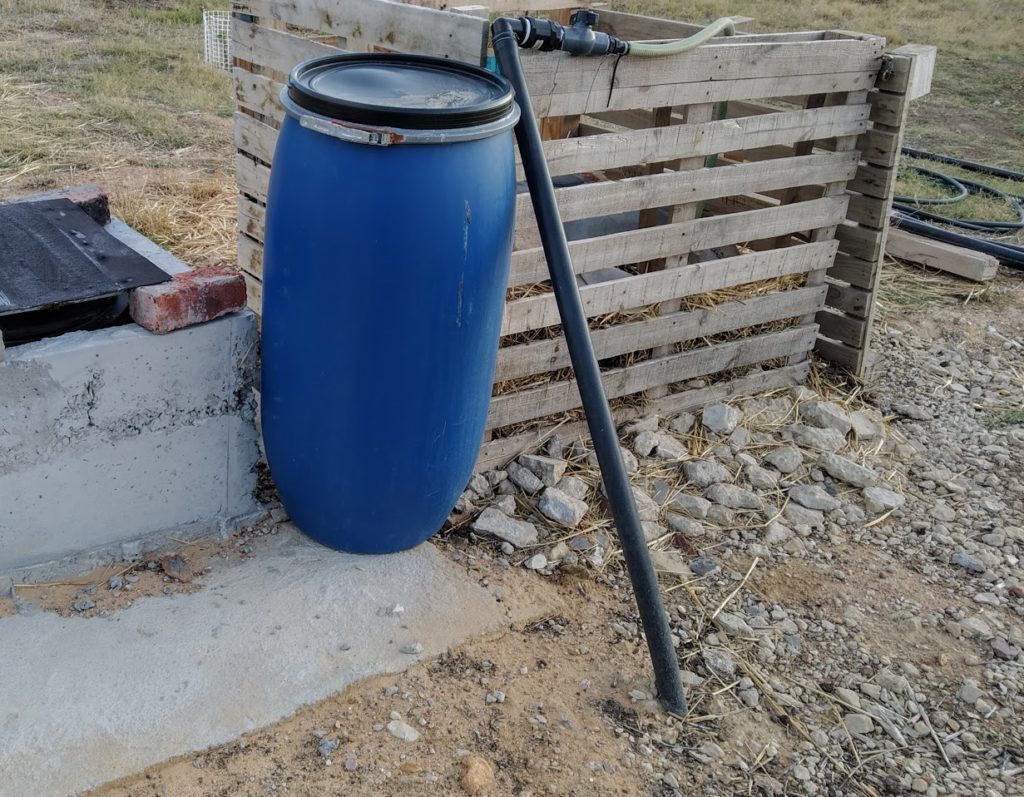
ABC. Always be covering.
This really forms a part of the mulch point above, but I want to reference some specific case points. Builders do not care about your property or plans, they mix cement where they want, dump and bury whatever they like and throw paint out when it suites them. We still find cigarette boxes, butts, and bottles when we dig! It leaves you with compacted areas which are sterile and lifeless. Naturally, this results from evicted and murdered ground-biology from bacterial to fungal layers and up the macro-scale. If I could go back one year, I would have added insanely thick layers of woodchip and compost on these battlefield areas. Keeping the soil moist and armoured invites life back into it, restoring it. We have another article on this topic, please give it a read. If you have any exposed soil, cover it, armour it. Ignore these red lights at your own peril.

I admire our friends and neighbours who track and analyse things that matter! One of them meticulously record all rainfall in a notebook. Looking back after a year, I would have loved to see statistical data on vegetation changes and animal movement on our property, especially how it influences other things. There is something to be said for recording data, and it really is not that hard to take a minute from your day to make notes, scribble down some numbers and observations. Events or sightings that seem insignificant now, will prove useful later. In the meantime, we launched a weather station, which is key for my plans on correlating temperature, humidity, wind and rainfall with the development of certain areas, animals and projects. For the more technical minded geeks, there are scripts and online services that can parse your data into graphs and predictions. Imagine that.

The permaculture mantra of water says, slow it, spread it, sink (or store) it. Our property is flat, with only four degrees of gradient in most places. The slope is just enough to let water migrate across, but not sufficient for good drainage. This leaves us with one solution, and the right one. Swales in permaculture, are man-made constructs designed to harvest water by horizontally spreading and slowing its flow on land. Instead of water running off with your valuable topsoil, it can be captured in a swale where it will sink into the ground. While this happens, surrounding areas stay moist and an artificial local water-table can be emulated in the area. The problem? We do not have swales in place yet, because we thought the property was too flat. It turns out that we wrong.
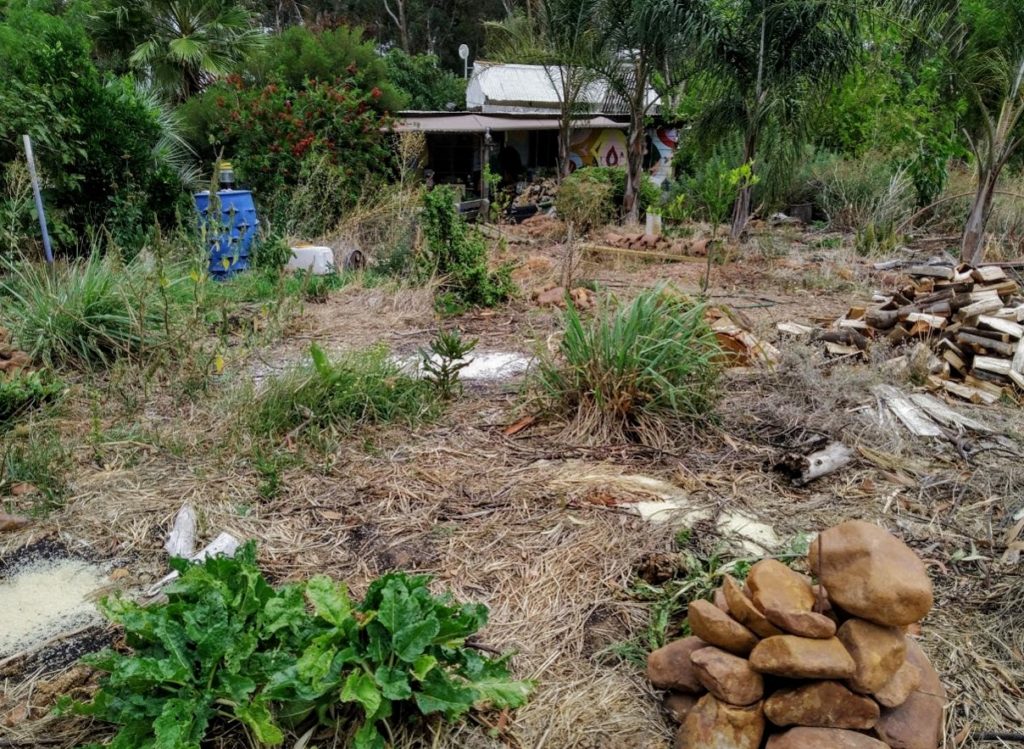
Moving to a new area was a loaded exercise for us. Starting with new, dry and unhealthy field is a task by itself, all while meeting new people and trying to remember names and places. We did what we could, with the time we had, no doubt about that. I do however wish that I took some invites we got more serious. We have amazing friends and acquaintances around us now, and it took months to realise the influence they have on our property and lives. Up the road from where we live, there are people that motivated me to push my off-grid dependence a lot further, sparking new ideas. We only got to meet them almost a year later. Three weeks ago, our friends at Hillbilly farm told us to meet up with two guys doing proper permaculture nearby. We were so busy that we ignored it for two more weeks. Having met Charl and Derrick now, I wish we did this sooner. My train of thought and direction changed literally overnight. Good people, with humble roots and strong knowledge makes it worth it. Share, people, trade and make it work. The power of networking outside of the pointless social-media space is immensely powerful.
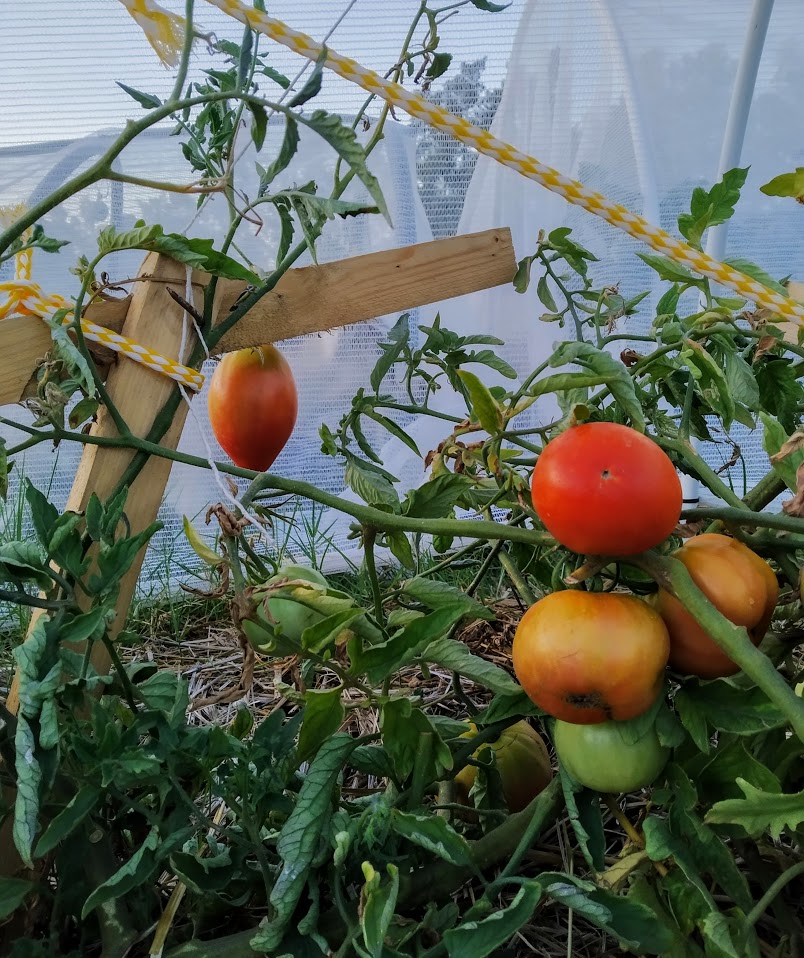
Here is another area that left me submerged in doubt and bewilderment. I dislike following strict planting seasons, mostly because our mild, sunny climate allows it year-round. We ignore the seeding times and, still getting successful. There is a problem though that slowly creeps up on you, though. You have several plants doing great, yielding nice amounts of vegetables for weeks, instilling confidence. While your gardens are lush and productive, you forget that a lot of things have temporary production times. Nothing is carrying and you have zero yield until the next batch is ready.
Advice to myself follows…
Plant often, all the time, loosely heeding the recommended planting times. Consider the frosty months, water requirements and time-to-harvest carefully, but experiment more. Plant more, test, seed save. This is what I wish I did last year, sooner and more often.
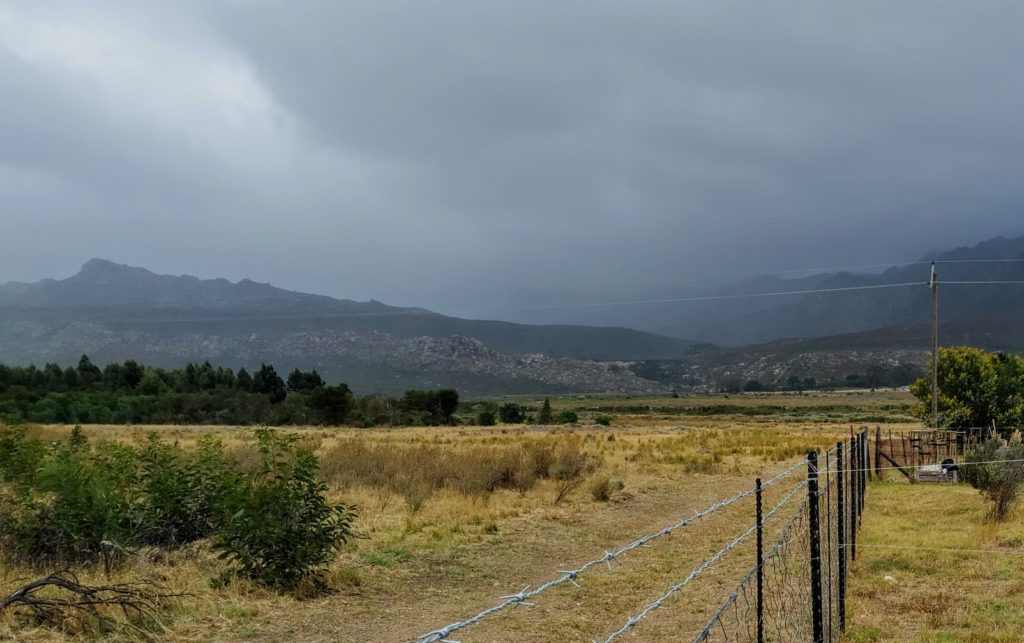
We get OK rain in winter, and pretty much none in summer. Occasionally, the skies open up a bit, providing a shy 5 mm of rain every other month. We have several water tanks placed around the property to provide strategic buffers for firefighting and water supply to the cottages, but we only have one measly tank for rain harvesting. It’s simple, make-shift setup is not ideal either. I watched the winter rains come and realised that I could have filled multiple 10-kilolitre tanks without breaking a sweat. Water harvested from rain is merely slowed down, not wasted. Even if we had infinite supplies of water on earth (which we do not), I look at unharvested rains as a crime. I regret not having more tanks in place, and I hope I can solve that problem before our winter arrives again. We will use the water for irrigation and diluting the groundwater to improve its purity. It also seems that the animals love drinking rain water a lot more.

Here’s something different. Mindset.
If there’s anything in this world that we have more than enough of, it is negativity and wanton desires to destroy. So take this home: Ignore it, stop worrying about it, stop being concerned with things you cannot change. I have limited the amount of uncertainty and doubt that controls us from the outside. News, social media, negative people, bitter and jealous people, opinionated peddlers of obscure diets and causes… all too much. I feel better already, and I wish I could convince everyone else to do the same. Worry about what you can change but do not let the external factors of empty humdrums grind you down mentally or physically. Live your life, make it count, and push positive change outwards. There are some talented people out there that do not come out in famous books or on TV. Inspirational people filled with wisdom and change lurk around the corner from your house, and in your office. Seek them out!
Thank you so much for visiting Simple-Earth, and even more so for reading. Here is to hoping for a fantastic 2020 for everything and everyone. See you again! Thanks for reading 2020 – To Err Is human, To Fix, Sublime.
Thank you last, but not least, for supporting our Patreon cause and goals helping us make more time to write even better and more frequent articles!

